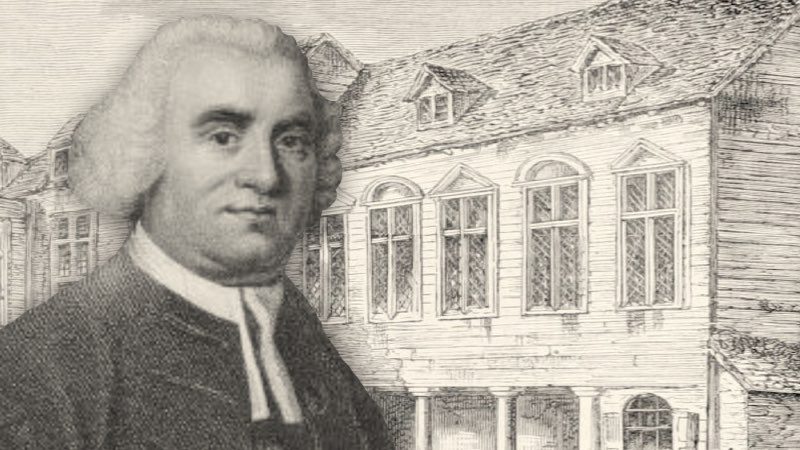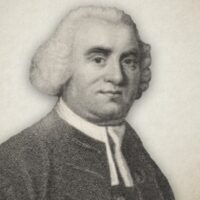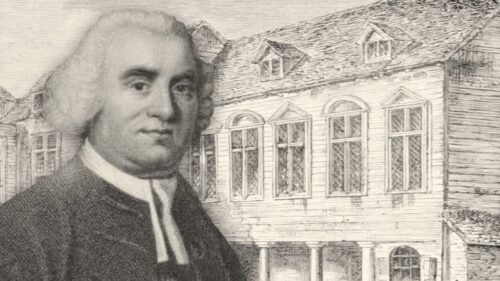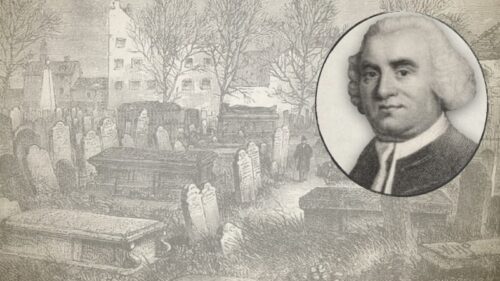
The Life And Legacy Of John MacGowan
Gospel Standard 1854:
Mr. Reynolds, pastor of the Baptist church, at Cripplegate, has given us a vivid description of the blessed frame of Mr. MacGowan’s mind during his last illness. He says,—
Mr. MacGowan was one of the most valuable Christian companions I ever had the honor of an intimacy with. He was the amiable Christian, the sincere friend, and the faithful minister of the gospel. No one more sensibly felt the loss of him than myself. Infrequently visited him, when he took occasion, as opportunity offered, of opening to me his whole heart. At one time, he was in great darkness of soul, and lamented exceedingly the withdrawings of God’s presence. Two things, he said, had deeply exercised his thoughts; one was, how those heavy and complicated afflictions which God had seen fit to lay upon him could work so as to promote his real good; and the other, that God, his best Friend, should keep at a distance from his soul, when the Lord knew how much his mind was distressed for the light of his countenance. “O,” said he, turning to me and speaking with great earnestness, “O, my soul pants for God, for the living God; his love-visits would cheer my soul, and make this heavy affliction sit light upon me. The presence of Jesus, my Redeemer, I cannot do without. I trust he will return to me soon; yea, I know he will in his own time; for he knows how much I need the influence of his grace.” In this conversation, he mentioned the depravity of his nature, and what a burden he found it. “My heart,” said he, “is more and more vile. Every day I have such humiliating views of heart corruption as weigh me down. I wonder whether any of the Lord’s people see things in the same light as I do.” Then turning to me, he said, “And do you find it so, my brother?” Upon my answering him in the affirmative, he replied, “I am glad of that.”
The next time, which was the last of conversing with him, I found him in a sweet and heavenly frame; his very countenance indicated the serenity of his mind. On my entering the room, he cried, “O my dear brother, how rejoiced I am to see you! Sit down, and hear of the lovingkindness of my God. You see me as ill as I can be in this world, and as well as I can be whilst in the body. Methints I have as much of heaven as I can hold!” The tears of joy, like a river, flowed down from his eyes, and his inward pleasurable frame interrupted his speech for a time. He broke silence with saying, “The work will soon be over. You see also what you must soon experience. But death, to me, has nothing terrific in it; I have not an anxious thought; the will of God and my own will are one; it is all right, yet mysterious. We are to part here, but we shall meet again! You cannot conceive the pleasure I feel in this reflection, viz., that I have not shunned to declare, according to my light and ability, the whole counsel of God. I can die in the doctrines which I have preached; they are true; I find them so. Go on to preach the gospel of Christ, and mind not what the world may say of you!” All the while I sat silent; and, rising up to take my leave, fearing he would spend his strength too much, he immediately took me by the hand; and, weeping over each other, we wished mutual blessings. Upon rising, he said, “My dear brother, farewell, I shall see you no more.”
Thus (continues Mr. Reynolds) I left my much-esteemed friend and brother; and the next news I heard of him was, that on Saturday evening his immortal spirit left the body, to go to the world of light and bliss, and keep an eternal Sabbath of rest with God, angels, and saints.
Mr. MacGowan was well-known in the world, and especially in the churches of the saints, both as a minister and an author. An ardent zeal for the gospel of Christ engaged the powers of his mind. As a preacher, he was faithful, judicious, and affectionate. His humility was very remarkable. He experienced great conflicts in the discharge of his ministerial office, on account of a habitual sense of his sins and corruptions, which frequently overwhelmed his mind when he appeared in public. He was always highly spoken of, and held in great esteem by his brethren in the ministry.
His several publications are standing proofs of his great abilities and singular talents. His “Death, a Vision,” is an invaluable treasure. The “Shaver; or Priestcraft Defended,” as laying open the evils of priestcraft in our universities; and his “Dialogues of Devils,” as delineating the pride, the wiles, and the stratagems of depraved human nature; the anatomising of these, in the way in which Mr. MacGowan has handled the dissecting knife, will, perhaps, never be surpassed. His “Socinianism brought to a Test; in a Series of Letters to Dr. Priestley,” is a performance that deserves close reading and deep thinking.
Mr. MacGowan was but young in the ministry when Dr. Gill died, and having lost in him a venerable friend, whom he loved exceedingly for the truth’s sake, and from whom he had derived great spiritual advantage, the ardour of his mind led him to write some pathetic lines on his death, from which I select the following:
“Those days were precious, when the voice of truth
Unmixed, by thee proclaimed, our willing feet
Drew thither; and the genial dew of youth
Shed on our hearts, and made our joys complete.
“But now thy pulpit’s dumb; thy voice no more
From thence proclaims illustrious truth divine:
Better employed on yonder blissful shore,
And here to mourn in solitude is mine.
“Yet still, methinks, I hear the solemn sound
Of sov’reign love, as preached by thee of yore;
Of boundless heights and depths beyond profound,
Brimless and bottomless, without a shore.
“O the sweet theme! how has my heart been warmed
With holy gratitude, to hear thee tell
Of grace foreknowing, grace selecting, armed
At all events, to rescue me from hell.”
John MacGowan (1726-1780) was a Particular Baptist preacher and author. In 1766, he was appointed pastor of the church meeting at Devonshire-square, London (a chapel that was opened by William Kiffin in 1687).





